Greece crisis: Pharmacies running low as patience wears thin
- Published
Pharmacist Antonios Tsalpatouros spoke to the BBC's Jasmine Coleman
"Tell Europe SOS," says 66-year-old Flora, as tears stream down her cheeks.
"We need to know whether they will help us or not. We need an answer now."
Her family has run this pharmacy in the port area of Piraeus, on the west coast of Athens, for 44 years.
But she does not know whether she will be able to open tomorrow.
It is one day after Greeks voted against the latest conditions offered by the country's creditors for a new bailout package.
But now businesses such as this one are "desperate" for a solution to the crisis.
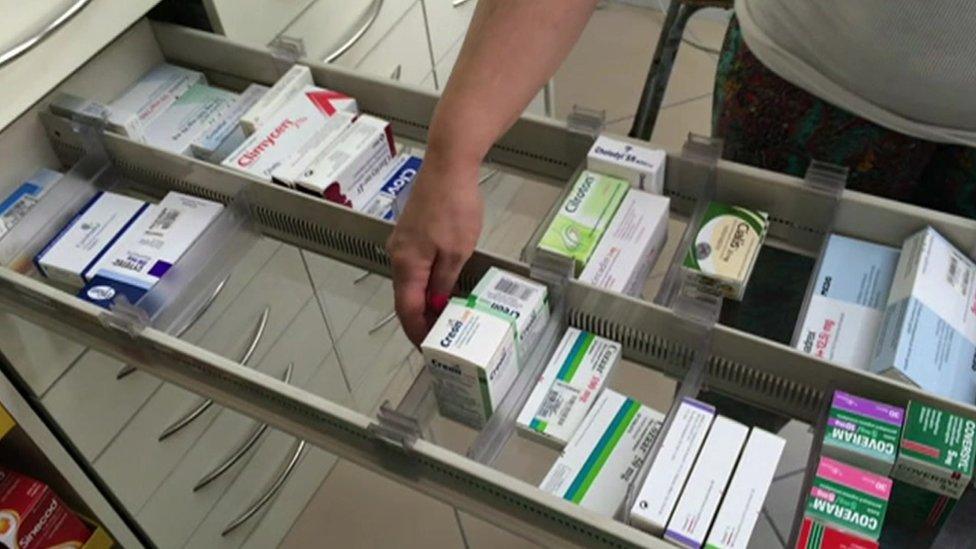
Supplies here are running dangerously low in Piraeus
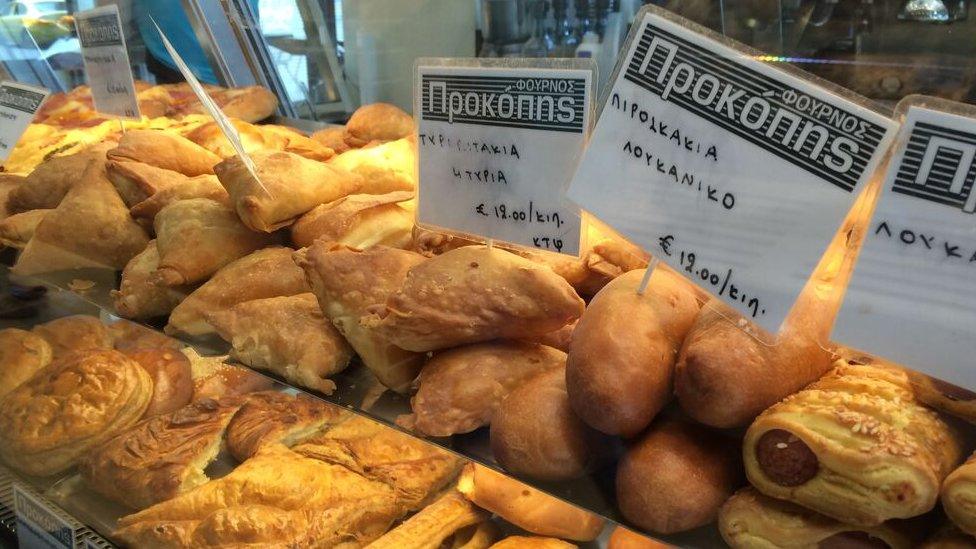
Bakeries and coffee houses in Piraeus show no sign of shortages
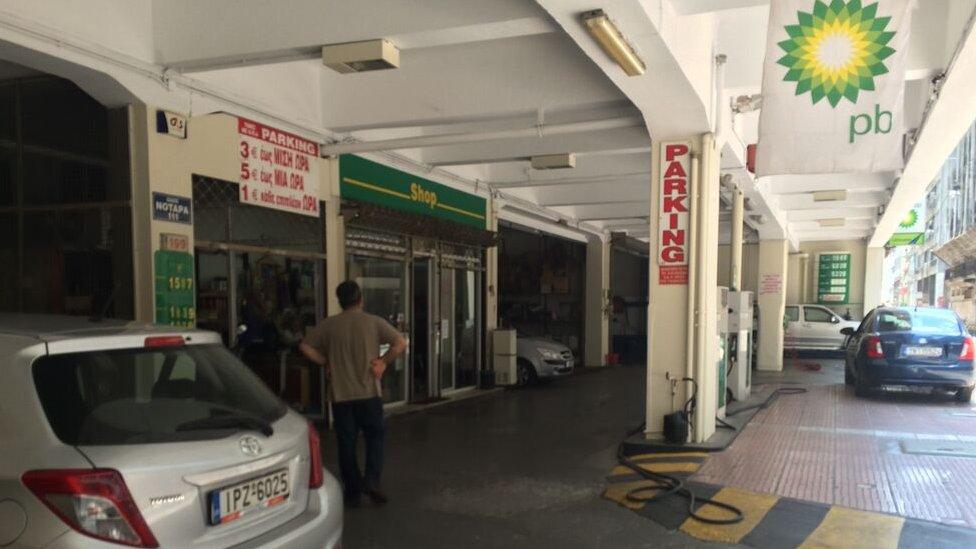
There are certainly no queues at this petrol station in Piraeus
Supplies here are running dangerously low. One customer comes in asking for seven boxes of a particular medicine, but Flora - who did not want to give her surname - has only been able to order in two boxes today in total.
Government restrictions mean pharmacies can only get limited stocks, she says, and dire finances mean they struggle to buy even those.
The government owes her company three and a half months in payments, so now the daily delivery is just one plastic shopping bag of pill boxes. Empty spaces gape in drawers and cabinets.
Other pharmacies blame shortages in the supply chain as foreign suppliers become increasingly hesitant to sell to Greece due to the financial instability.
Rationing medication
Drug companies are reportedly owed more than €1.1bn ($1.2bn) by Greek hospitals and the state-run health insurer, after not being paid since December.
But they have promised to keep supplying the country on humanitarian grounds, according to Reuters.
Around the corner, another pharmacist Antonios Tsalpatouros says he is rationing medication so that there is enough to go around.
"When the banks closed, we had to change the situation. We control the giving of medicines," he says.
Capital controls mean queues for cash machines remain long and hot. Withdrawals are limited to 60 euros a day, but the machines only give out 50 euro notes.
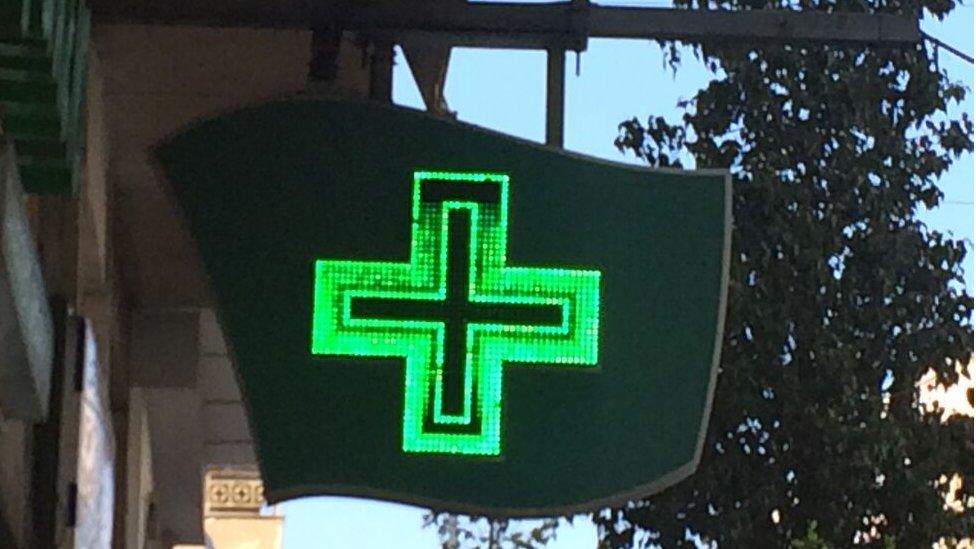
Drug companies are reportedly owed more than €1.1bn ($1.2bn)
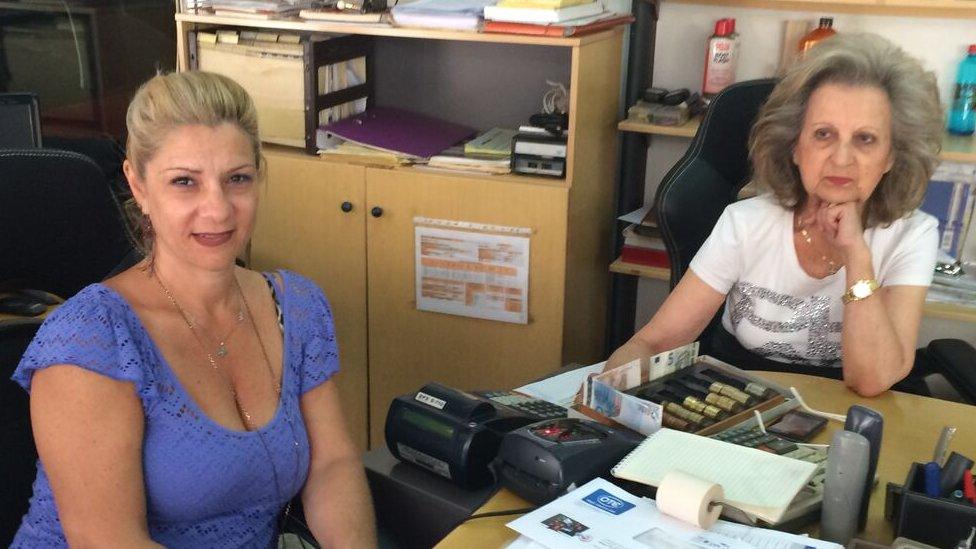
Petrol station worker Tonia Tserkaki (L) says business is down and customers who do come pay in cash
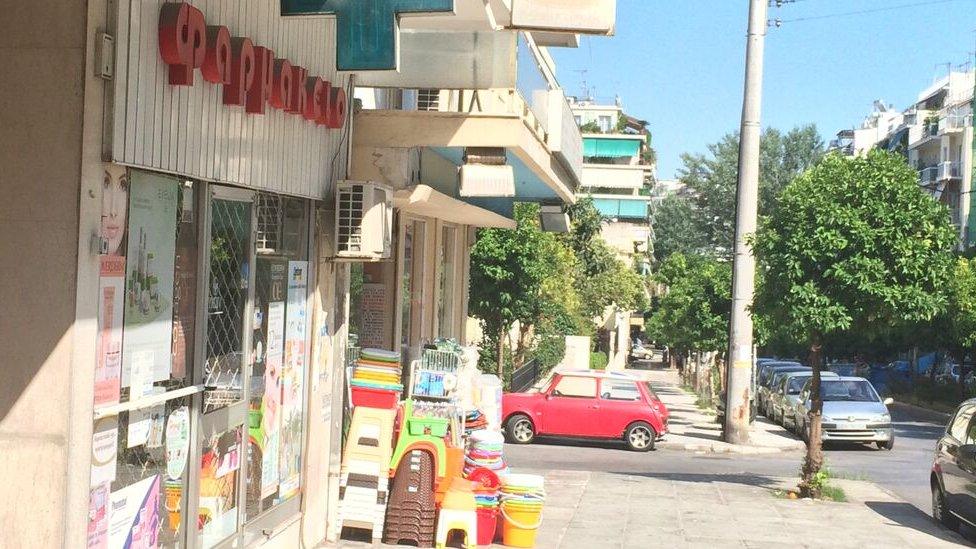
While Greeks may not be hunkering down quite yet, the streets are certainly quiet
There are certainly no queues at a nearby petrol station.
At the till, Tonia Tserkaki says business is down and those customers that do come are paying in cash.
Unlike at the pharmacies, getting supplies has not been an issue.
"As far as we know, there is enough," she says. "There is not a problem so far, but we do not know what will happen in the very near future."
Meanwhile, some reports in recent days have warned of supermarket shelves left bare as Greeks stockpile food.
This seems ridiculous as you walk the streets of Piraeus lined with bulging bakeries and coffee shops.
A supermarket manager, who does not want to be named, tells me there was an increase in customers last week, but since Sunday's referendum it has been business as usual. And there have been no problems with keeping stocks high.
The food is not running low - at least not here, and not now. But while Greeks may not be hunkering down quite yet, the streets are certainly quiet.
Daily life has been getting worse in Greece over months and years of financial crisis. Now people are waiting to see what the coming hours will bring.
Patience has been in strong supply, but in many cases this is now quickly running out.